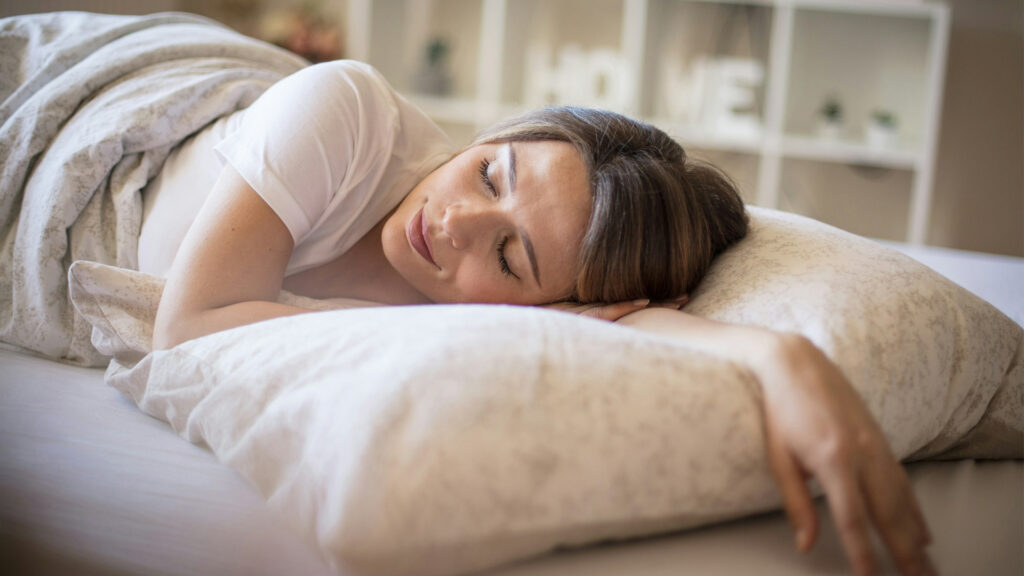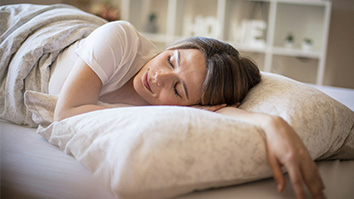
Researchers study how menopause can affect sleep and women’s physical and mental health.
Menopause is a significant transitional period in a woman’s life, often accompanied by physical and emotional changes. One of the most common and challenging symptoms is insomnia. In this Q&A, Fiona Baker, Director of SRI’s Center for Health Sciences and Human Sleep Research, delves into the mechanisms behind menopausal insomnia, its prevalence, and effective management strategies. Baker is a strong advocate for understanding sleep health in women and has published extensively on women’s sleep issues, including during menopause.
What in the body causes menopausal insomnia?
Insomnia can arise around the time of menopause for many reasons, including frequent and severe hot flashes and night sweats that disrupt sleep, hormone changes, mood changes like depression, which is closely linked with insomnia, and stress.
How common is insomnia in menopausal women? What about women in perimenopause (the years leading up to menopause)?
Insomnia symptoms are very common in perimenopausal women, being present in about 40-50% of women, and these symptoms persist as women enter menopause. The most common complaint is waking up during the night and having difficulty going back to sleep. About 26% of midlife women meet the criteria for a clinical insomnia disorder, where the insomnia symptoms are frequent, persistent, and impact quality of life. Insomnia is also common in women going through surgical menopause.
“There is a growing number of options for managing insomnia.” — Fiona Baker
After you go through menopause, does the insomnia tend to go away or are you stuck with it?
Insomnia symptoms taper off post-menopause and there are some improvements, but symptoms don’t completely go away. Patterns of symptoms can differ between women as they enter post-menopause. It’s important to keep in mind that other menopausal symptoms, like hot flashes, can persist for a median of around 7 years, so for the women who suffer hot flashes that disrupt sleep, that can continue for a few years post-menopause.
Do we know how to tell which women may be more prone to menopausal insomnia?
We cannot yet predict who might develop menopausal insomnia and who won’t, but there are some risk factors. A key factor is having a history of insomnia since women who already have sleep problems are more likely to have those problems persist or worsen as they go through perimenopause. That’s why it is important to address insomnia early and speak to a healthcare provider about treating insomnia to establish healthy sleep — it’s easier to fix the problem when it’s in the early stages.
What’s your advice to women experiencing insomnia during perimenopause and menopause?
Something can be done about it! There is a growing number of options for managing insomnia, including pharmacological and non-pharmacological treatments. Sleep difficulties can also occur in association with several medical conditions (e.g., chronic pain) and sleep disorders like sleep apnea, which increases in prevalence in women post-menopause.
Talk about your sleep problems with a healthcare provider — sleep is such an important pillar of health!
For more detailed information on Baker’s work, watch this video. You can learn more about the sleep lab or contact us today.



